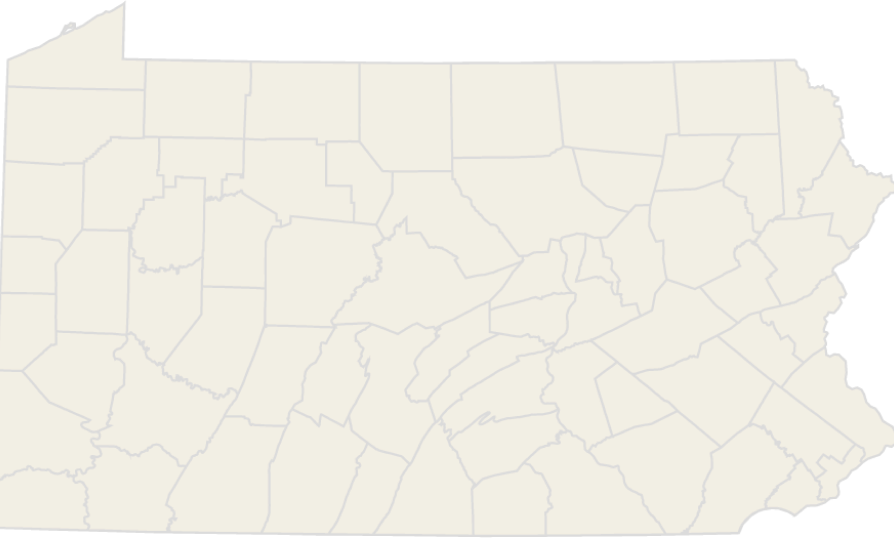
In Pennsylvania, individuals charged with drug offenses confront not only significant legal penalties but also the far-reaching consequences of a potential criminal record. To address this, the state offers a compassionate alternative to traditional criminal justice proceedings through its Drug Court program. This initiative prioritizes rehabilitation over punishment, offering a second chance for those struggling with substance addiction. This article explains the Drug Court’s purpose, outlines eligibility criteria, and details the application process in Pennsylvania.
What Is Drug Court?
Pennsylvania's Drug Court is a judicially supervised program designed to handle cases involving non-violent drug offenders who are struggling with addiction. Unlike traditional courts, Drug Court focuses on long-term recovery and rehabilitation through a structured program, including therapy, drug treatment, and frequent court supervision. This program’s aim is to minimize recidivism by addressing the underlying issues related to drug-related criminal activity.
The Benefits of Participating in Drug Court
Participants in the Drug Court program can experience numerous benefits. including:
- Reduction or Dismissal of Charges: Successful completion of the program often leads to reduced penalties or the complete dismissal of charges.
- Avoidance of Incarceration: Enables participants to pursue recovery without the complications of imprisonment.
- Access to Comprehensive Treatment: Each participant receives a tailored treatment plan, including therapy, medical care, and support groups.
- Ongoing Support and Supervision: The court monitors progress, ensuring a supportive environment that fosters successful recovery.
Eligibility Requirements for Drug Court
Not everyone charged with a drug offense is eligible for Drug Court. Eligibility criteria include:
- Legal Eligibility: The program is intended for individuals charged with non-violent drug offenses.
- Residency Requirement: Applicants must be residents of Pennsylvania.
- Dependency Evaluation: A professional assessment must confirm addiction as a significant factor in the criminal behavior.
- Background Check: Applicants should not have a history of violent offenses, which would immediately disqualify them from the program.
Applying to Drug Court: Navigating the Application Process
The application process for Drug Court involves several key steps:
- Preliminary Screening: Conducted by a defense attorney, this review evaluates the nature of the charges and the applicant's background.
- Detailed Assessment: Addiction specialists assess the suitability of the applicant for the program.
- Review by Prosecutors: The county prosecutor must approve the application, verifying compliance with all eligibility criteria.
- Judicial Approval: Admission to the program is ultimately decided by a Drug Court judge.
Integrating Legal Guidance with Rehabilitation Goals
The intersection of legal defense and therapeutic rehabilitation is where Pennsylvania's Drug Court program truly distinguishes itself. Effective legal guidance is not just about navigating court procedures but integrating the client’s rehabilitation goals with their legal strategy. The Law Offices of Joseph Lesniak, LLC excels in this dual approach, ensuring that our clients' recovery and legal outcomes are aligned. This holistic strategy is crucial for success in Drug Court, demanding a blend of legal acumen and a profound understanding of rehabilitation dynamics.
How Does Drug Court Work?
Once accepted, participants must commit to a stringent program, usually lasting from 12 to 36 months, involving:
- Regular Court Appearances: Participants must regularly appear before the Drug Court judge, who assesses their progress and provides necessary encouragement or sanctions.
- Mandatory Treatment Programs: Enrollees participate in designated treatment programs, which may include residential treatment, outpatient programs, and regular drug testing.
- Compliance with Probation Requirements: Participants must fulfill all probation conditions, which can include community service and maintaining employment.
Contact The Law Offices of Joseph Lesniak, LLC for a Free Consultation About Your Criminal Defense
Facing drug-related charges in Pennsylvania can be daunting, and navigating the complexities of the Drug Court system requires not only extensive legal knowledge but a compassionate approach tailored to your personal circumstances and recovery goals. At The Law Offices of Joseph Lesniak, LLC, we offer more than just legal defense; we provide a partnership to help you navigate through this challenging time with dignity and a commitment to securing a favorable outcome.
Our team is dedicated to understanding your specific circumstances and advocating for your best interests both in and out of the courtroom. We offer personalized, comprehensive legal strategies to support your path to recovery and a brighter future.
For a confidential consultation and to learn more about how we can assist you or your loved one with drug-related charges and Drug Court proceedings, contact us today. Let us help you take the first step towards reclaiming your life.

